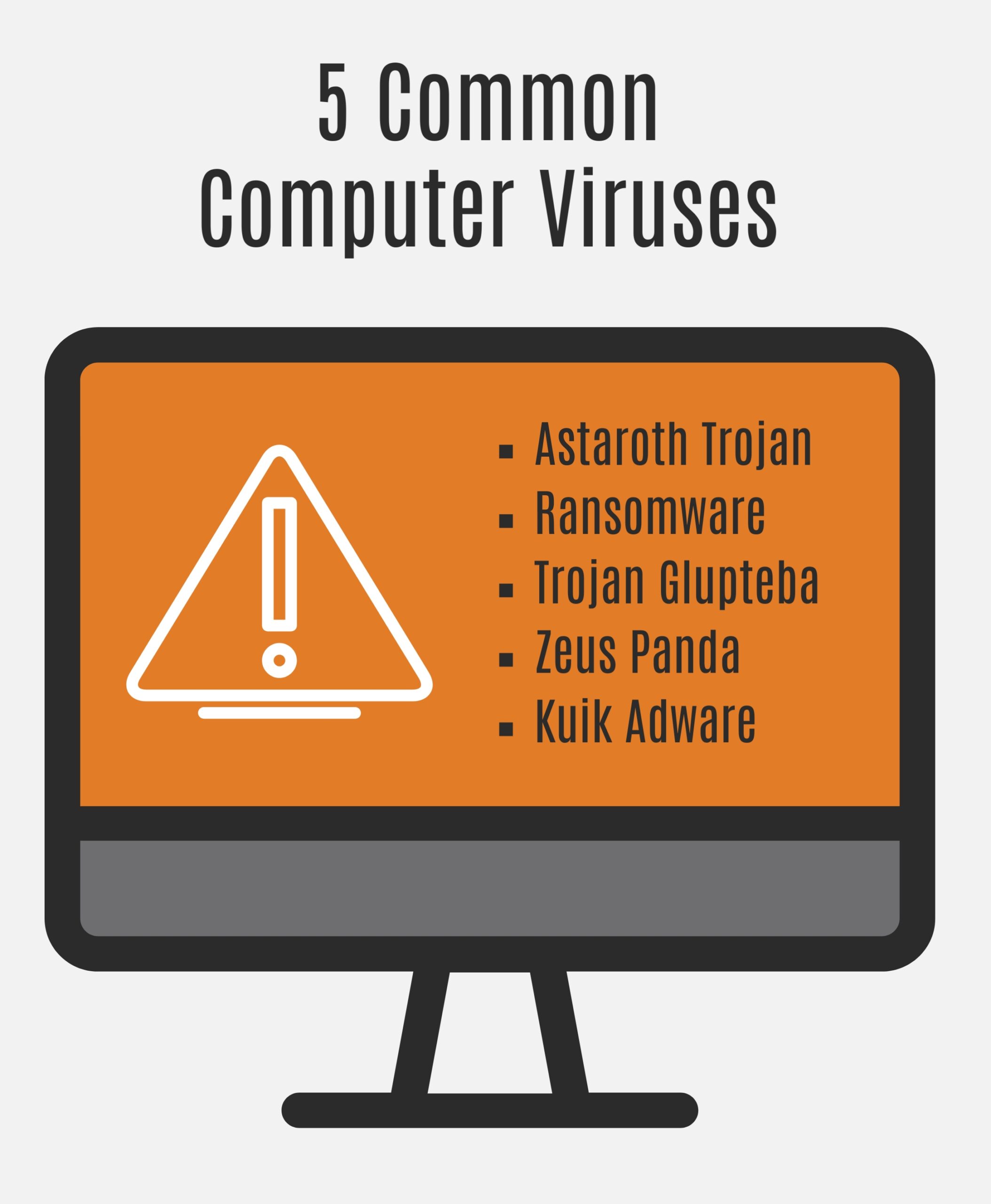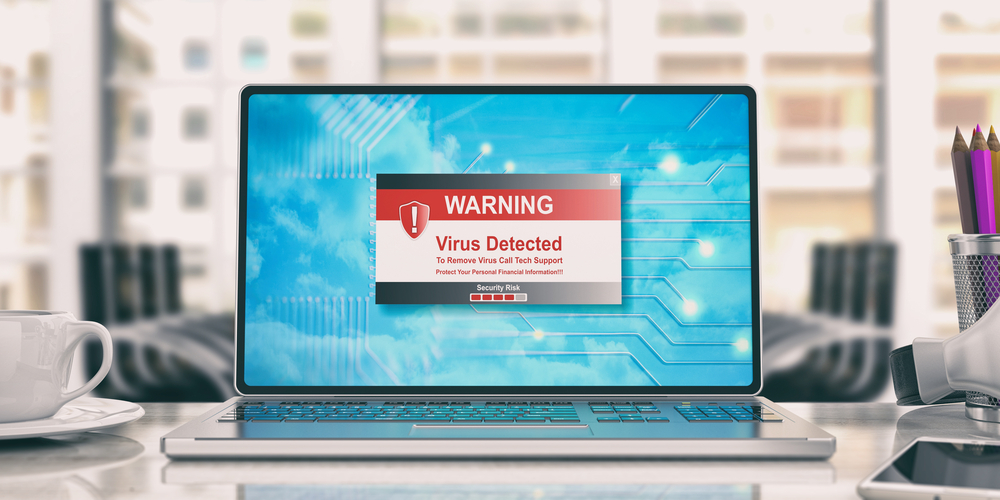One of the biggest areas of concern for computer security experts is computer viruses. As most people know, these malicious programs invade your computer and steal or destroy data. Some may even allow hackers to take remote control of your device. Needless to say, viruses pose a serious threat to your information security.
What do you know about common computer viruses? Here’s what you should be prepared to defend yourself against. #Enstep Share on X

Common Computer Viruses
It would take all day to describe the sheer amount and different types of computer viruses that have wreaked havoc over the years. Many older viruses no longer pose a threat anyway. However, it’s always important to stay up-to-date on some of the more recent and significantly dangerous computer viruses. Here’s what your company should keep an eye out for:
- Astaroth Trojan
- Ransomware
- Trojan Glupteba
- Zeus Panda
- Kuik Adware
1) Astaroth Trojan
Trojan viruses are nothing new, but the nature of the Astaroth Trojan virus makes it particularly insidious. This virus uses keylogging and clipboard monitoring, among other methods, to copy and steal users’ login credentials for banking information and other sensitive data. Worst of all, this virus “lives off-the-land” and installs no files of its own, making it especially difficult to identify and track. This virus is best detected and removed by a team of experts.
Read more about the Astaroth virus’s discovery and efforts to resist it here.
2) Ransomware
If you’ve been following the tech industry in the last few years, you know exactly what ransomware is. This particularly notorious form of a computer virus blocks off or encrypts massive amounts of your computer’s data or systems until you pay to regain access. Listing every common type of ransomware and their dangers would take all day, but these particular viruses could pose the biggest threat going into the new year:
- CryptoMix Clop Ransomware, which claims to be able to block off entire networks as well as individual machines
- B0r0nt0k Ransomware, a virus that infects websites and threatens to wipe their data unless a Bitcoin ransom is paid
- Yatron Ransomware, a ransomware-as-a-service program that individual users can buy and spread to blackmail other users
- Gandcrab Ransomware, another ransomware-as-a-service virus that spreads through malicious websites or spam emails. While the creators of this virus claim to have stopped development, users should still take precautions to protect themselves.
- Magniber Ransomware, once mostly focused on Asian users but now threatening users globally
- Thanatos Ransomware, a program that makes data recovery difficult even for developers and could render any ransom payments worthless
Pro Tip: Our managed security systems monitor your computer and network in real-time and alert you of any potential viruses trying to get in. Never worry about infected computers or files again!
3) Trojan Glupteba
This particularly dangerous virus mimics legitimate software on your computer and steals information by directing your internet browsing to fake domains. Trojan Glupteba poses a severe threat to your data. If even the best web filters and careful browsing habits allow this dangerous virus to slip through, it’s time to call the experts for help.
4) Zeus Panda
Also known as the Trojan Panda Banker, this virus uses SEO to elevate its position in the Google search results when users search for particular financial information. It can also infect computers through exploit kits, explicit websites, and spam emails. Once installed, this virus combs your computer data and activity to find and steal banking and transaction information. As with many viruses, the best strategy is preventive: don’t visit suspicious websites, click on suspicious links, or download email attachments from people you don’t know or trust. The risk is simply too high.
5) Kuik Adware
Kuik Adware pretends to be an Adobe Flash Player update. Once installed, it masks itself as a legitimate program to bypass your antivirus system and install Chrome extensions and other malicious programs to steal your financial data. This virus is all too common and easy to overlook on a cursory examination. If you suspect your computer is infected, stop using it until a professional can examine your device and remove any suspicious data or files.
Protect Yourself!
Dealing with a virus on your personal computer already costs valuable money and time and puts you under a lot of stress. But dealing with a company-wide infection is far, far worse. When you consider the potential for lost data, stolen banking information, and spyware, the possibilities are endless–and not at all in a good way. Keeping your business data safe from these common computer viruses is absolutely worth the effort.
Connect with us for more information security tips and to learn more about our managed security solutions for business owners.




